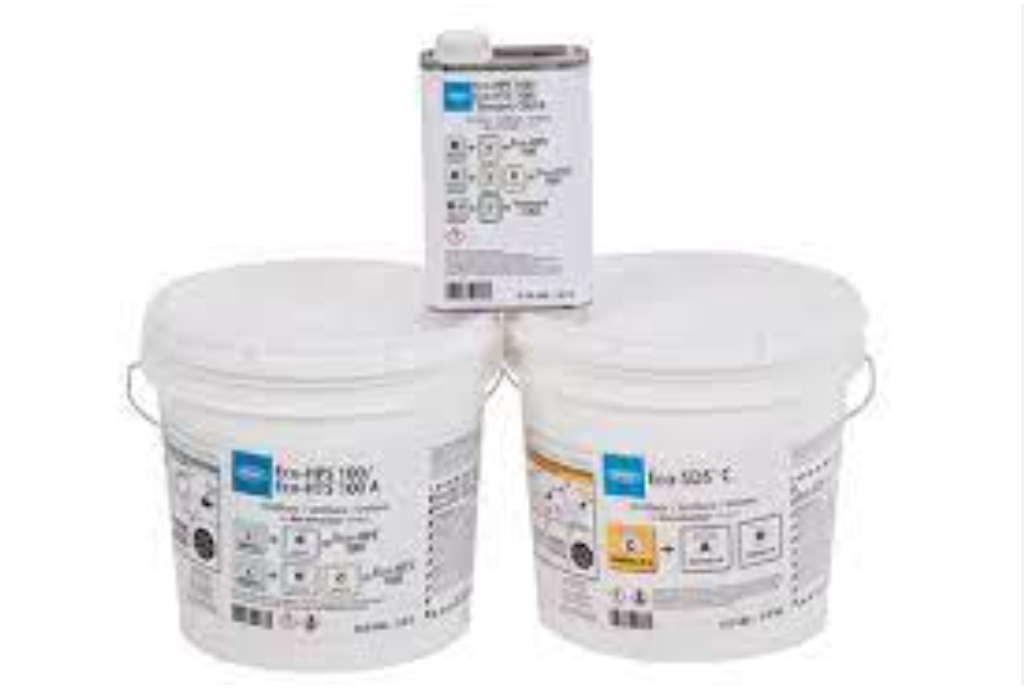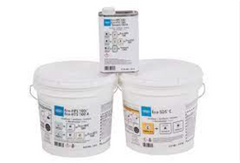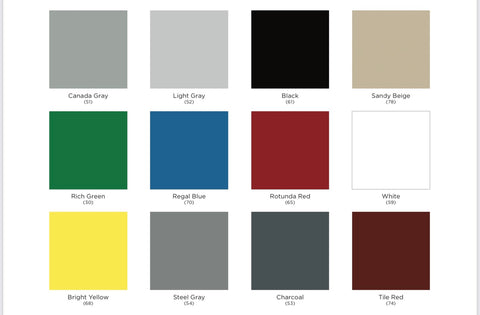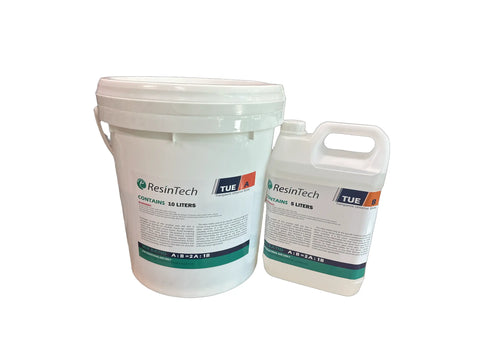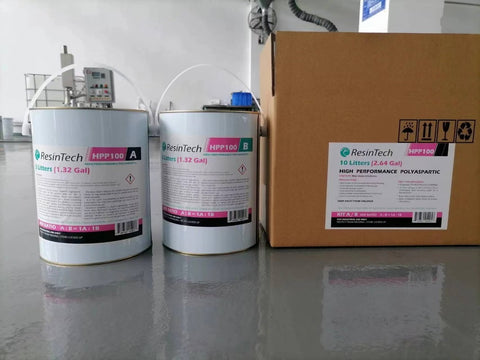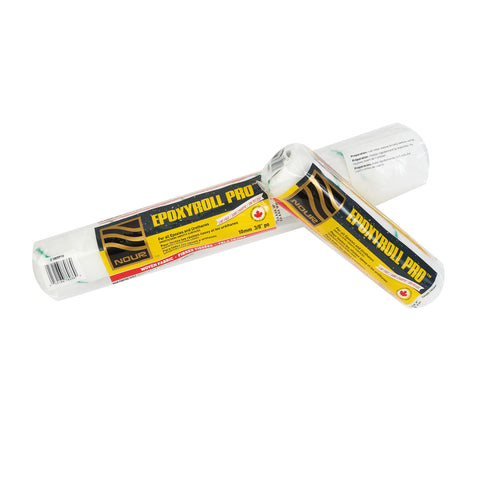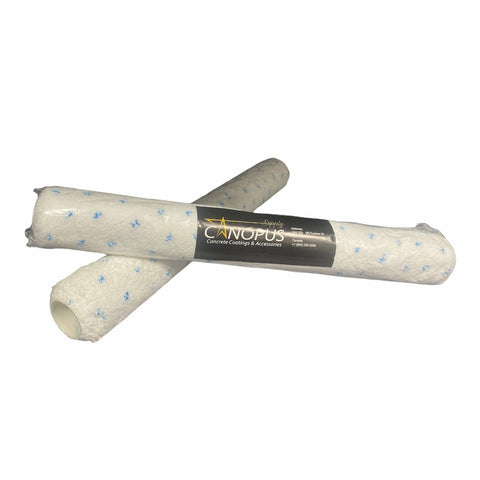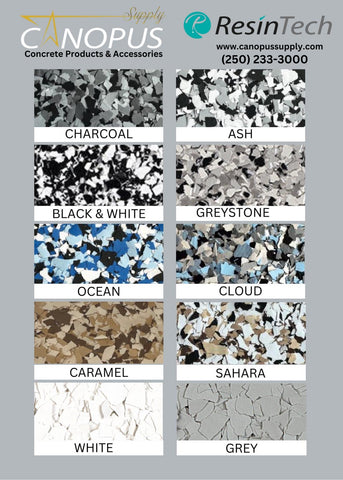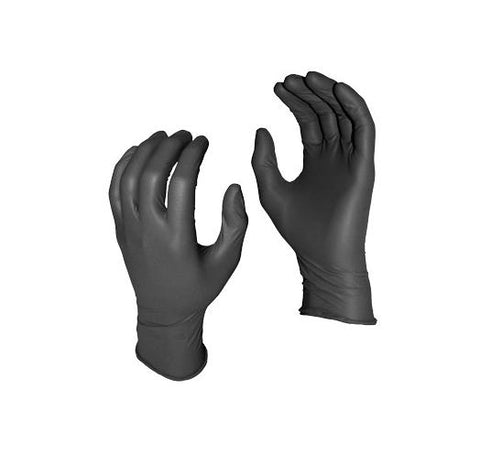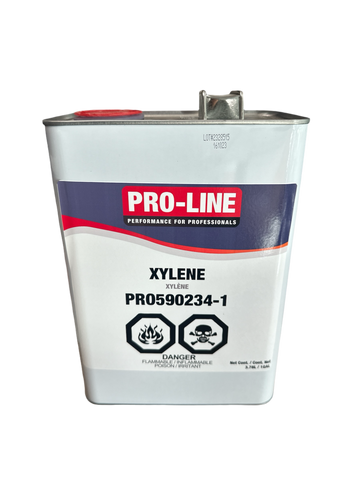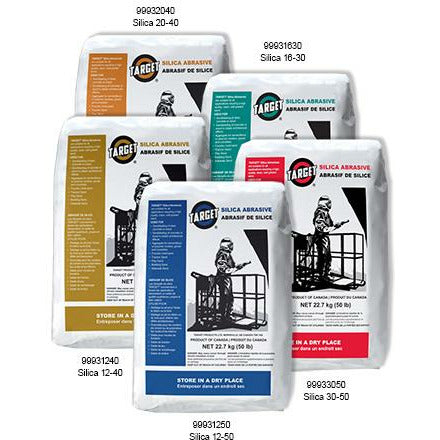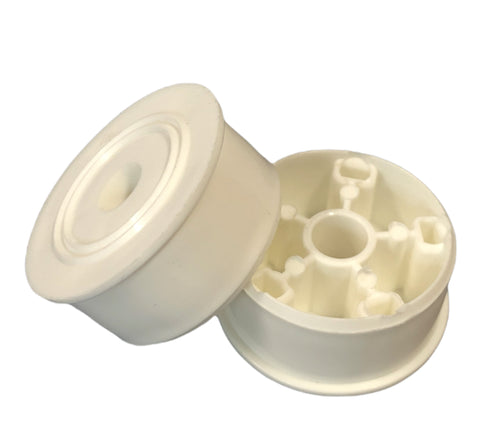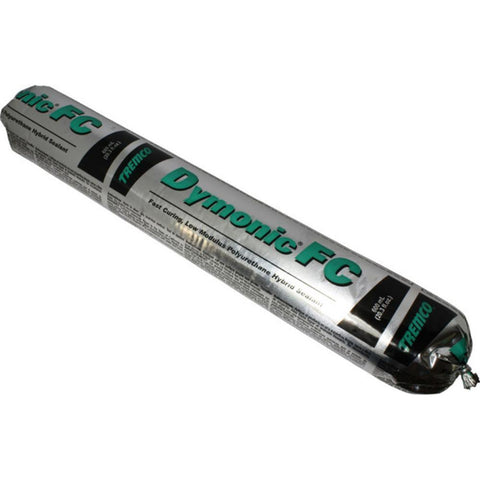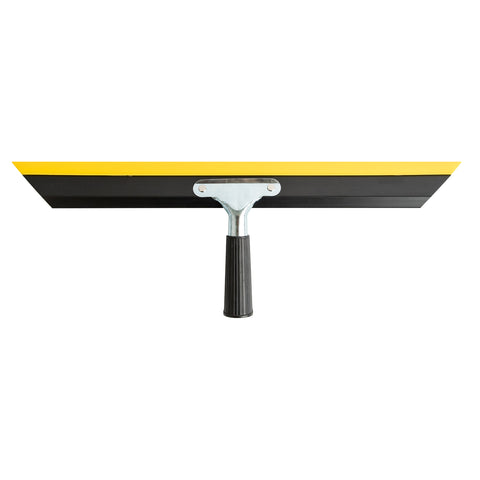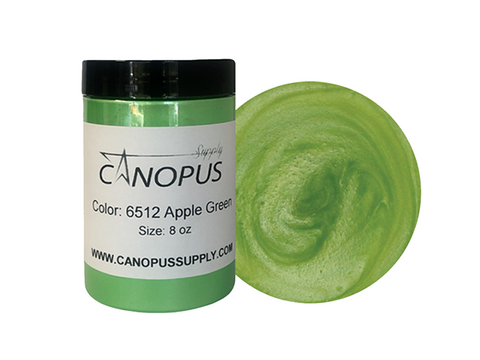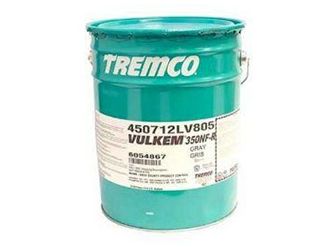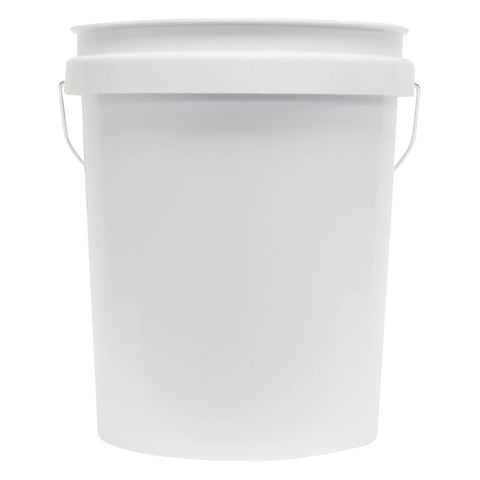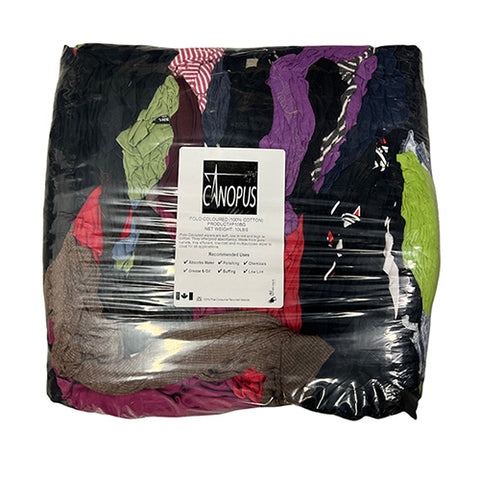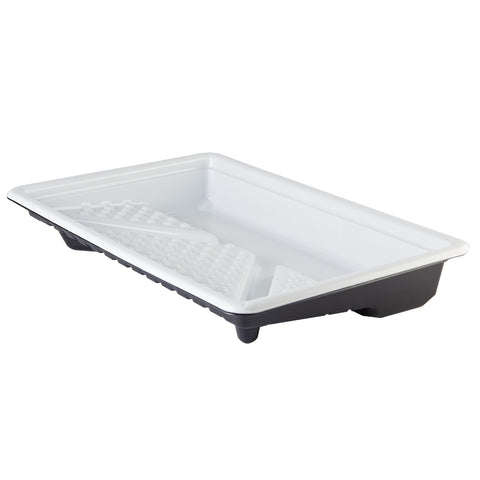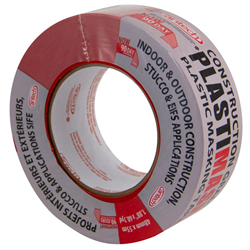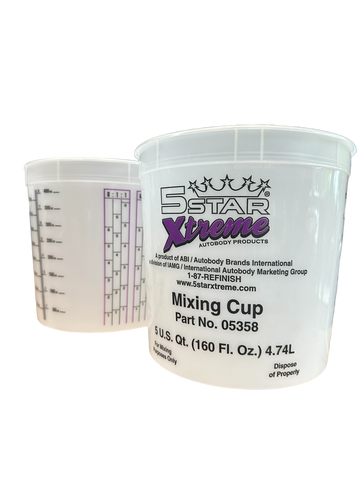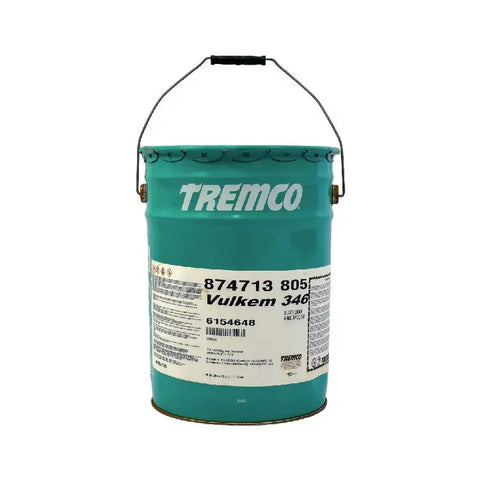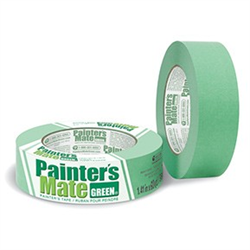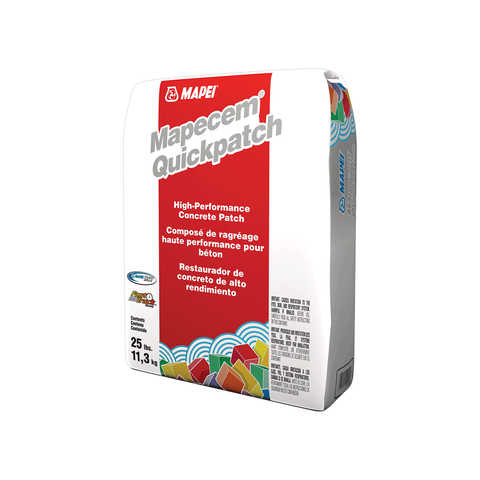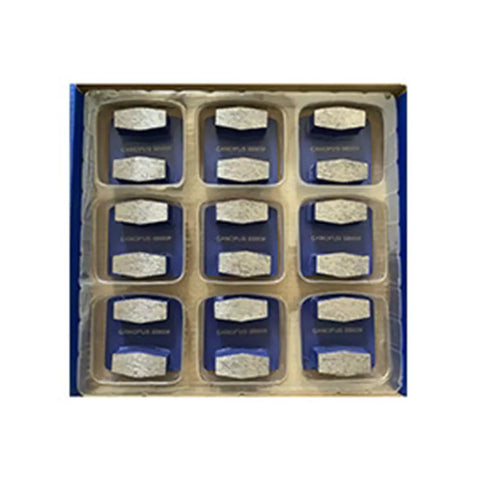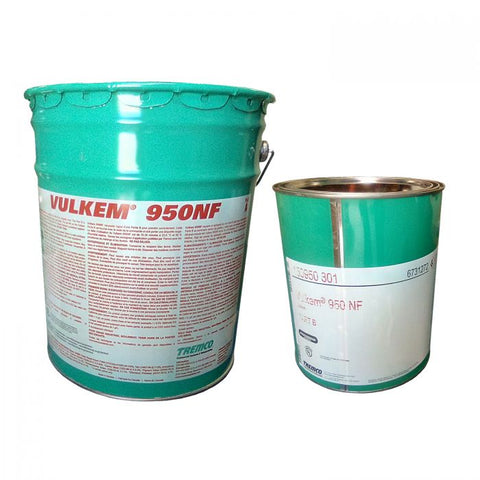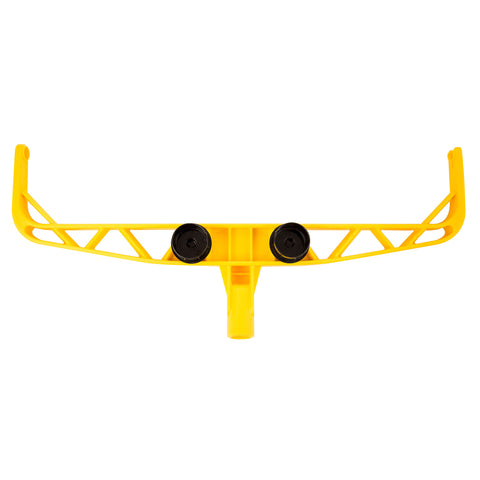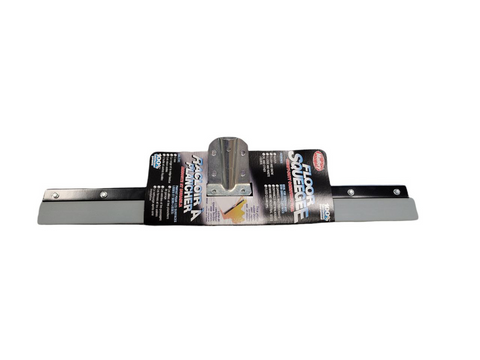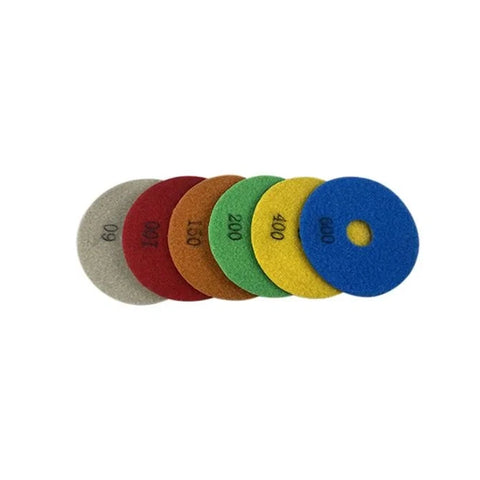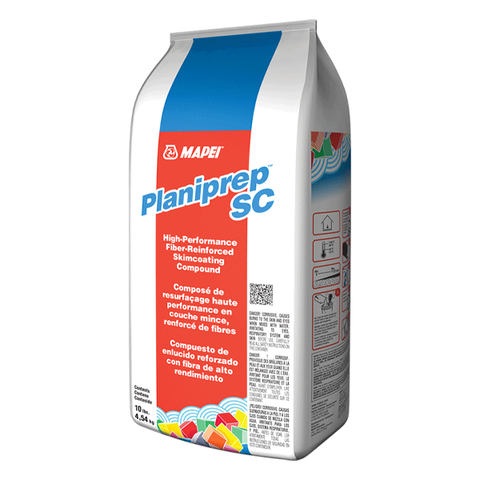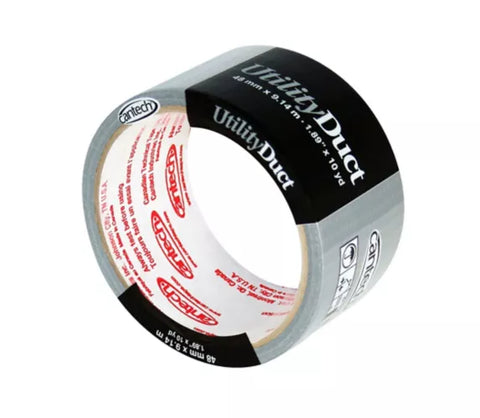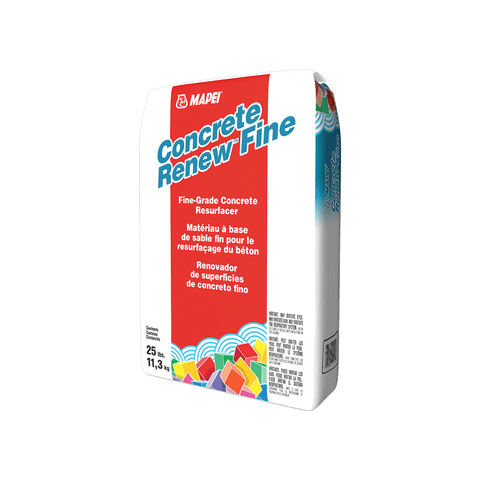Eco-SDS™ Satin
Eco-SDS™ Satin Tennant’s Eco-SDS Satin is a durable, chemical-resistant, static dissipative urethane coating with a satin finish, which helps reduce the effects of static electricity Key Features of Eco-SDS Satin Electrostatic discharge control – Meets ANSI/ESD STM 7.1-2013 for resistance readings 1x10⁵ ohms to <1x10⁹ ohms LEED – Credits available...
$1,980.00
Real time +43 visitor right now
Eco-SDS™ Satin
Tennant’s Eco-SDS Satin is a durable, chemical-resistant, static dissipative urethane coating with a satin finish, which helps reduce the effects of static electricity
Key Features of Eco-SDS Satin
- Electrostatic discharge control – Meets ANSI/ESD STM 7.1-2013 for resistance readings 1x10⁵ ohms to <1x10⁹ ohms
- LEED – Credits available – Indoor Environmental Quality – 4.2 Low Emitting Materials, Paint & Coatings
- Lasts as long as standard urethanes, up to two times as long as standard epoxies
- Satin Sheen which maintains a fresh look even in high traffic areas that reduces the effects of static electricity
Application
- On bare concrete, an epoxy primer is required
- Apply Eco-SDS Satin at 600 sq ft per gallon
Color and Size Options
- Not available in clear/neutral, must add colorants to product
- Choose from standard and custom colors
- Eco-SDS Satin – 1.09 gallon unit
- Part number 9014335
- Kit Includes:
- Eco-SDS Satin Part A (Qty 1)
- Eco-SDS Satin Part B (Qty 1)
- Eco-SDS Satin Part C (Qty 1)
Download Data Sheet
Download Safety Sheet 1
Download Safety Sheet 2
Download Safety Sheet 3
Download Safety Sheet 4
Keywords:
🔸 Where to buy floor coating, coating, ucrete, epoxies, urethane mortar, epoxy flooring, tennant, flooring systems, silica sand, Aerospace, Uretanos, Aviation, Flooring, Tennant, Epoxy, Tennant coatings, hps,Indoor Environmental quality, Paint and coatings, , Top coat, Eco mpe, Decorative, Silica sand, Concrete, Tennant eco hps, Chemical resistant, hts
Have Questions? Ask An Expert
Related Products
From this Collection
-
Universal Pigment Pod$35.55Universal Pigment Pod Universal Pigment Pods are pigment that are fully compatible with the 100% ...
-
ResinTech UV Resistant TRANSPARENT UNIVERSAL EPOXY 100% SOLIDS (TUE) 15L - 4 Gals$316.00ResinTech TUE (Transparent Universal Epoxy) Specification Product Overview: ResinTech TUE (Trans...
-
ResinTech High Performance Polyaspartic (HPP) 10 L / 2.64 Gal$318.00Product DESCRIPTION HPP is a fast-curing, two-component Polyaspartic floor coating system engine...
-
EPOXY ROLL PRO Refill$12.95EPOXY ROLL PRO Refill Features: Solvent Resistant PVC Core Epoxy Bonded EPOXYROLL PRO roller...
-
Paint Roller Sleeves$4.99Paint Rollers Cover, 9 X 1.5inch - 18 X 1.5inch - 4 inch 10mm (10 Packs) Roller Cover Material:...
-
Canoflake 3/8'' Blend Flake System (55 LBS/Box)$18.00Canoflake 3/8'' Blend Flake System (55 LBS/Box) Blend Flakes are designed to use with the concre...
-
Nitrile Gloves$21.99Nitrile Gloves Size : M, L, XL 100 Gloves BLACK NITRILE POWDER FREE LATEX FREE NON-STERILE MU...
-
XYLENE$34.90Reducer No. 4 (XYLENE) Use exclusively for thinning industrial maintenance coatings. 3.78...
-
Silica Abrasives Sand$17.99Silica Abrasives are high quality, close graded silica sands which are produced at our Morinville...
-
Spike shoes (Adjustable)$14.99Spike shoes Spike shoes for installing self leveling and floor coating projects. Strap Shoes : ...
-
MPC-301 Aliphatic Polyurethane For Finish Coat$240.00MPC-301 is a 2-component, high solids, polyurethane-based aliphatic coating designed as a stable...
-
5/16 Plastic Cap for 18'' Refill$1.005/16 Plastic Cap for 18'' Refill Multiple flexible ribs ensure easy install and secure fit. Dura...
-
Dymonic® 100 High-Performance, High-Movement Single-Component, Polyurethane Sealant$11.00Dymonic® 100 High-Performance, High-Movement Single-Component, Polyurethane Sealant Basic Uses ...
-
Squeegee Trowel$33.95Squeegee Trowel Features: Trowel smoother with flexible rubber blade Threaded handle Multi-...
-
Metallic Epoxy Pigments$49.99Metallic Epoxy Pigments metallic collection 🔹AppleGreen🔸AztecGold🔹BlackPearl🔸Bronze-Brown...
-
Tremco Vulkem 350NF Base Coat$398.00Single-Component, Low Odour, Low VOC, Urethane Membrane Vulkem® 350NF Base Coat is a single-com...
-
5 Gallon Pail - Metal Handle$5.995 Gallon Pail - Metal Handle One gallon capacity Lid available Reinforced lip Durable constructi...
-
Rags (100% COTTON)$21.98CANOPUS POLO COLOURED Rags (100% COTTON) Polo Coloured wipers are soft, low in lint and hight in ...
-
23" Economy Tray$5.9523" Economy Tray R TL850 - Tray Liner R TR850 - Tray 23 inch tray (2L capacity) is made of rec...
-
Wooster 18 in. Big Ben Roller Frame$26.99Wooster Big Ben Roller Frame is sturdy and made of rust-free, easy-to-clean polypropylene. The le...
-
Thin Throwaway Brush$0.99Thin Throwaway Brush Features: One-use throwaway brush For cost-conscious consumer Great for...
-
CANTECH STUCCO TAPE 1.88"x60YD RD$12.99CANTECH STUCCO TAPE 1.88"x60YD RD Delivers sharp paint lines Removes cleanly with no residue...
-
6 Gallon Pail - Plastic Handle$6.496 Gallon Pail - Plastic Handle One gallon capacity Lid available Reinforced lip Durable construc...
-
Sausage Gun$28.98Sausage Gun 15 in, 600 ml Dispenses caulking, adhesive and sealant from a standard cartridge o...
-
Putty Knife$4.99Putty Knife, 4inch Stainless steel blade PP+TPR soft grip handle Keywords:🔸 Where to buy w...
-
Mixing Cup 5 US QT$5.505 Gallon Pail - Metal Handle 5 US QT capacity Keywords:🔸 Where to buy Bucket, Measure paint, ...
-
Aliphatic Top Coat Urethane (TCU)$21.95TCU is a two-component abrasion, chemical and stain resistant, UV stable aliphatic polyeste...
-
TREMfloor / Flowfresh$40.00TREMfloor / Flowfresh 2 Gal kit A slurry-broadcast, cost effective and HACCP International certi...
-
Vulkem 346 Top Coat Aliphatic one-component polyurethane$430.00Vulkem 346 Top Coat is an aliphatic one-component polyurethane that is applied after the Vulkem ...
-
PAINTERS MATE TAPE GREEN$3.99PAINTERS MATE TAPE GREEN PAINTERS MATE GREEN MASKING TAPE Use with all paints, most lacquer...
-
24" EPDM Rubber Blades$16.9524" EPDM Rubber Blades Features: For use with Aluminum Clamp Squeegee Ideal for all coat...
-
Roller Handle$2.95Keywords:🔸 Where to buy drywall, for small tiles, heavy duty, Nour product, Nour online catal...
-
MAPECEM QUICKPATCH$35.00MAPECEM QUICKPATCH High-Performance Concrete PatchMapecem Quickpatch is a high-performance, fa...
-
Canopus Redi Lock Diamond Tool$45.00Redi lock concrete grinding diamond pads ✔️For Grinding and polishing concrete floors. Keywords...
-
Tremco Vulkem 950NF Top Coat$424.00Vulkem 950NF Top Coat is a two-component polyurethane that is applied after the Vulkem 350NF bas...
-
SQUEEGEE TROWEL$24.95Pro Frame (Comes with 2 Endcaps) Features: Made of glass infused polypropylene making roller ...
-
Mallory - Floor Squeegee$50.00Mallory - Floor Squeegee HEAVY- DUTY CONSTRUCTION Thick pliable Rubber blade Gray-Regular n...
-
Diamond Polishing Pads$18.00Diamond Polishing Pads (5 Inch) For Wet and Dry Polishing Optimal RPM 2200 Max RPM 4500 Works ...
-
Aluminum Clamp Squeegee$36.95Aluminum Clamp Squeegee Features: Aluminum clamp-style squeegee for easy blade removal Heavy ...
-
Cup wheel for concrete$90.00Cup Wheel Diamond Disk 7 and 5 inch 6 Arrow segments 15mm height 30 grit soft bond Central...
-
Cutter - 18-mm - ABS Plastic and Stainless Steel - Yellow$3.99Cutter - 18-mm - ABS Plastic and Stainless Steel - Yellow The utility knife with ratchet blade ...
-
Paint brush 2inch$3.99Paint brush 2inch Solid round filament, shiny steel ferrule Keywords:🔸 Where to buy Finch ...
-
Floor Squeegee$19.99Floor Squeegee Plastic connector Zink Plate or stainless steel plate Size : 65 cm or 25 inch ...
-
Training Package 1$500.00Training Package 1 (Sep 18 2024) In this Training Package, you will learn how to prepare concrete...
-
Planiprep SC$34.00High-Performance, Fiber-Reinforced Skimcoating CompoundPlaniprep SC is a high-performance, polym...
-
CANTECH UTL TAPE 1.88"x50M GRY$7.99CANTECH UTL TAPE 1.88"x50M GRY Delivers sharp paint lines Removes cleanly with no residue ...
-
Wood Handles Threaded Metal Tips$10.95Nour Series, Deluxe 3 Piece Kit Z AC60M 1500 60 0-59186-74326-3 - 10 5 Keywords:...
-
Concrete Renew Fine$35.00Concrete Renew Fine Fine-Grade Concrete ResurfacerConcrete Renew Fine is a one-component, polym...
-
Trowel 4" x 14 " Carbon Steel$18.98Trowel 4" x 14 " carbon steel Get this Canopus trowel to smooth out materials like concrete, ...

